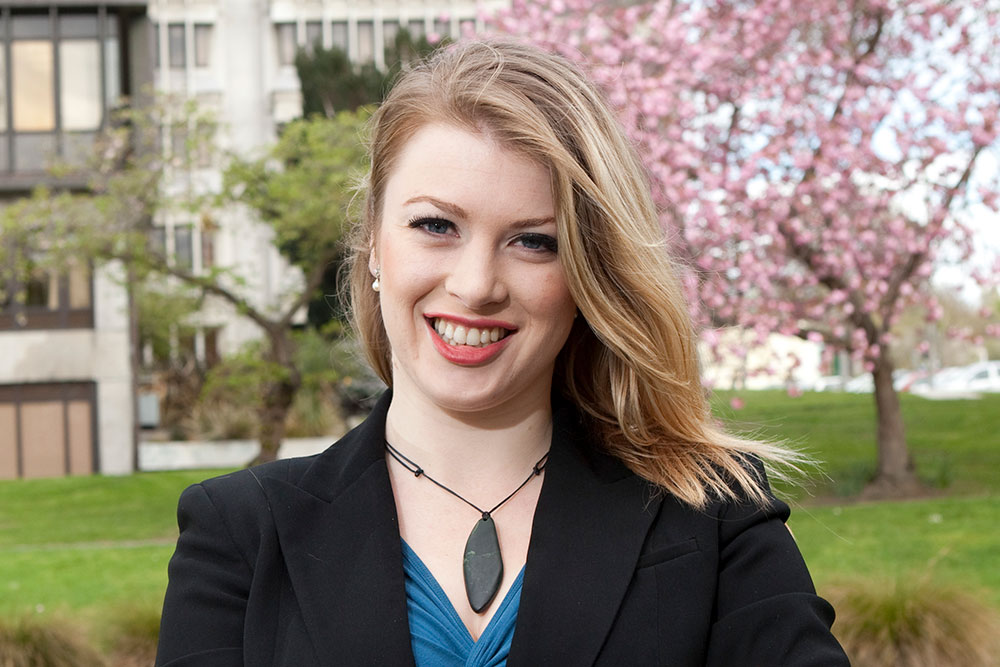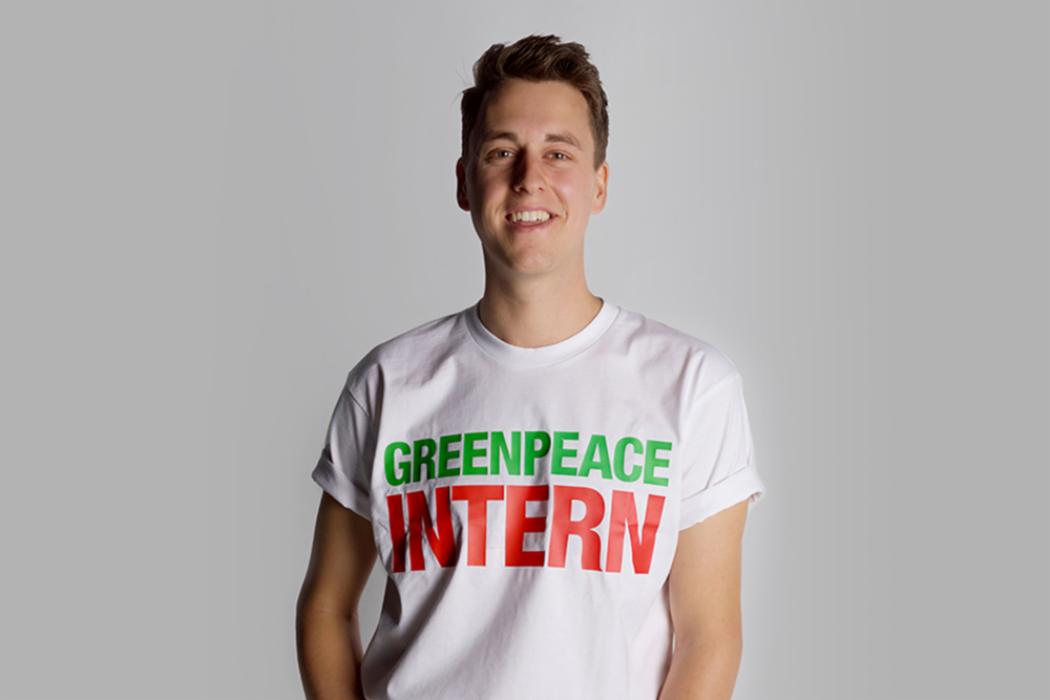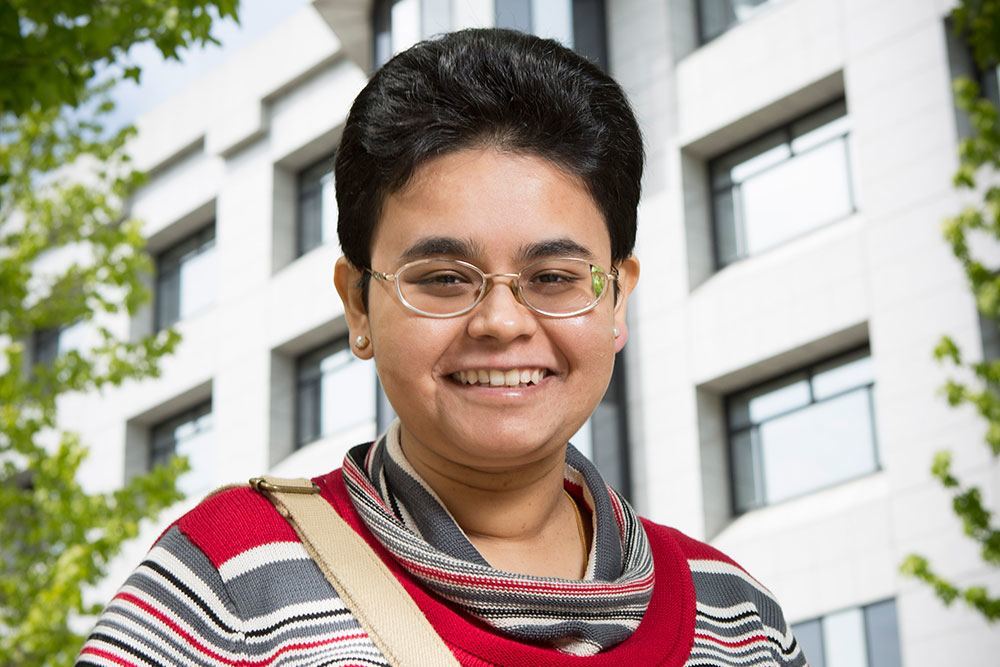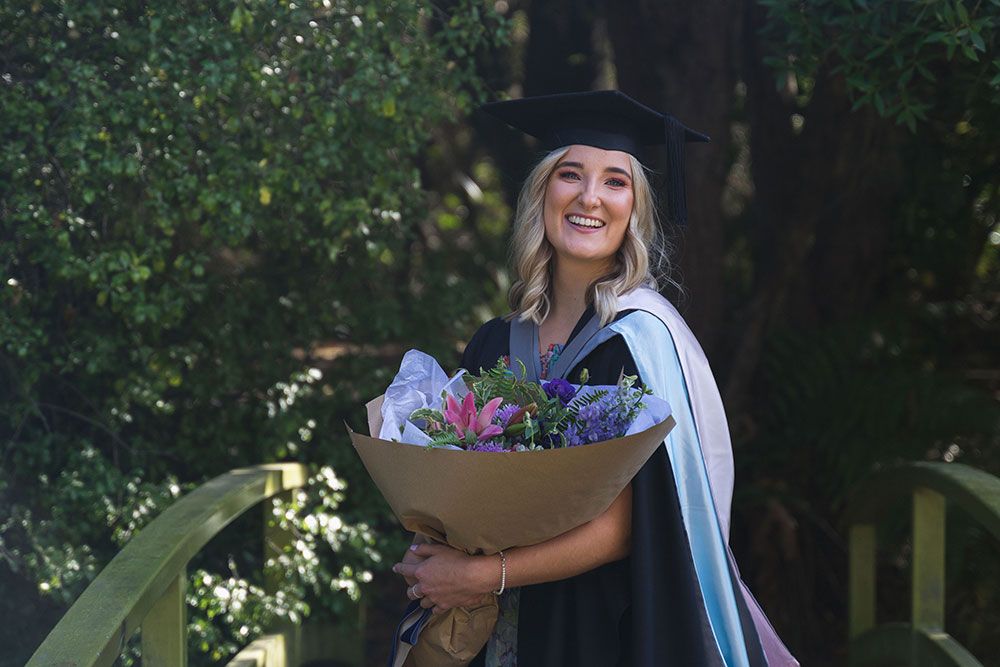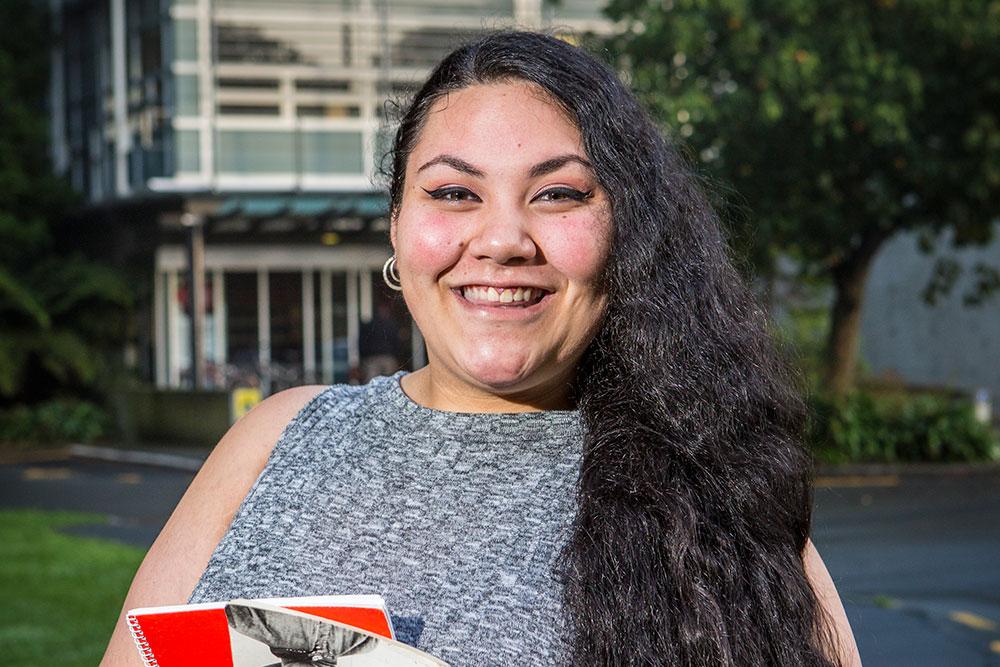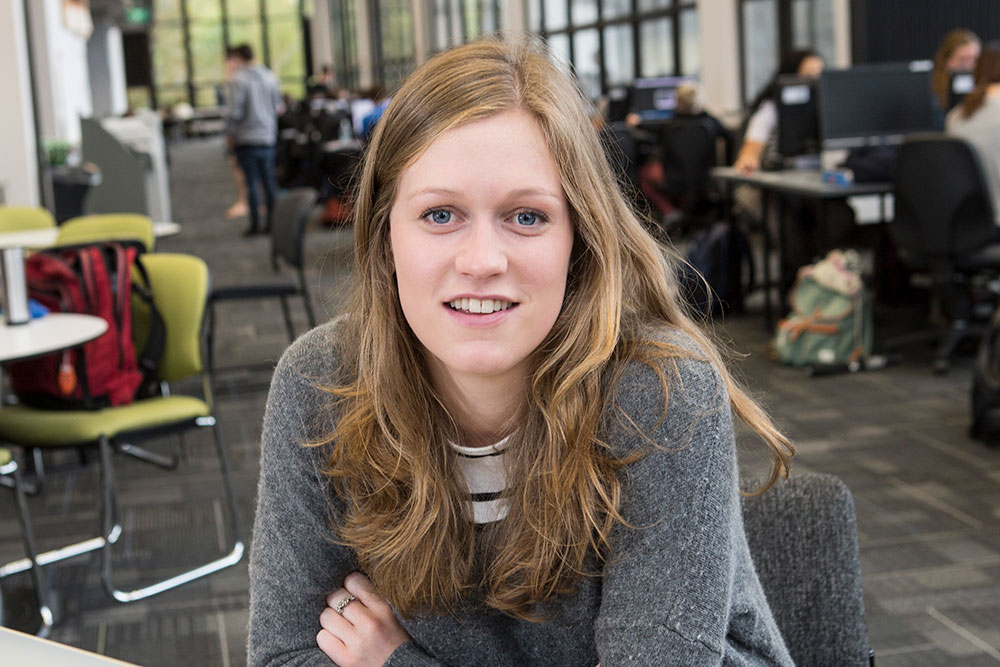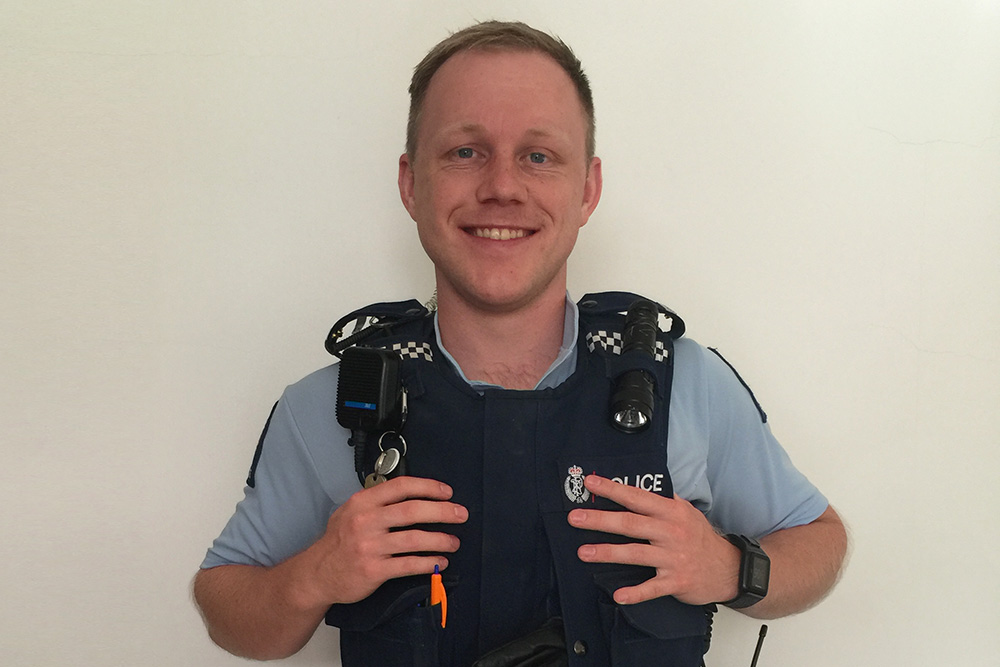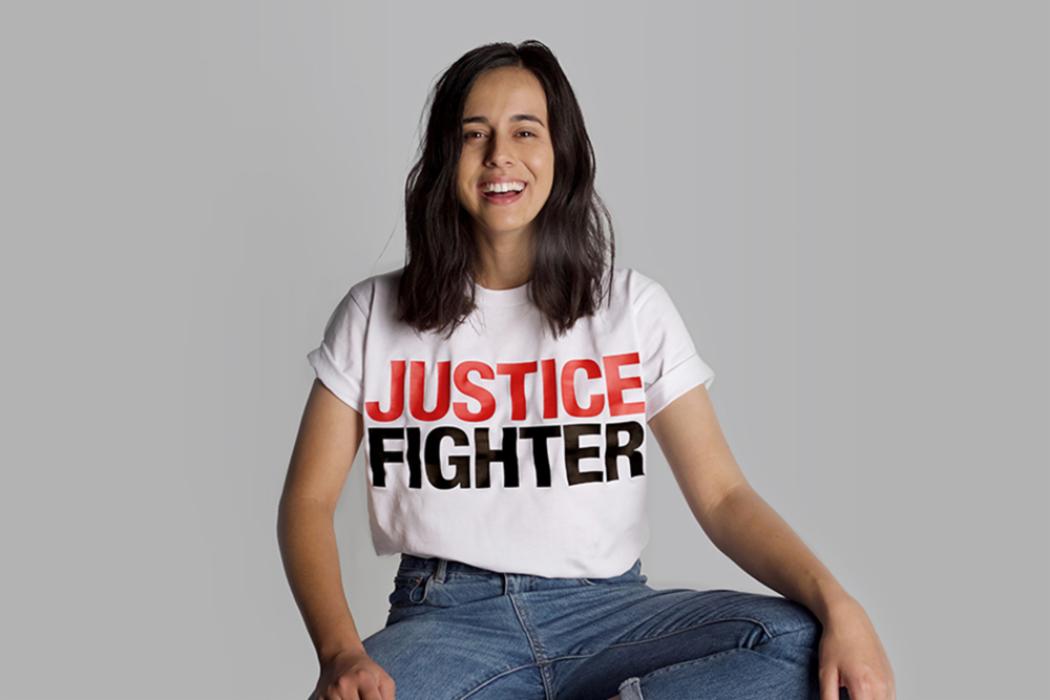(Ngāi Tahu, Ngāti Porou)
Bachelor of Laws and a Bachelor of Arts in Māori and Indigenous Studies and Sociology
Studying towards a Master of Laws
Programme Coordinator, Māori and Indigenous Leadership, Aotahi School of Māori and Indigenous Studies
The opportunity to conduct research supporting indigenous rights, in constitution and land laws in New Zealand, has been invaluable for Liam.
"What I really enjoy about my topic is that it is personally relevant, to myself and to my people. It is my way of giving back using the skills that I have," he says.
Liam enrolled with UC in Māori and Indigenous Studies to develop more understanding around his cultural heritage, and later found Sociology to be a great combination, with its focus on culture within societies.
Choosing to combine Arts with a Law degree was a last-minute decision as suggested by his sister, and turned out to be a whole new passion.
"Although LLB is a professional degree, it is a hugely applicable degree. I think that a lot of students go into Law thinking that the only option is to come out and be a lawyer. I wanted to be a researcher. My Law degree taught me how to critically think, how to write, and how to research. My BA, on the other hand, opened my mind to other possibilities, to think about the way I'm thinking.
"If you are doing a double degree, choose something that makes you happy and that really piques your interest, as I believe the other degree opens your mind to another world, a world that you can apply how to approach the law. My degrees work well together and they resonate as a whole with me, and the way I think."
Originally from Hawkes Bay, Liam's first year was spent at University Hall accommodation, which helped to settle into life in the South Island and be more involved with UC's campus lifestyle.
"I love the atmosphere, the campus, and the people. One of the biggest attractions to UC was the campus and facilities all in one place. The transformation is another thing that I've enjoyed about UC, and being a part of that, even in the most minuscule of ways."
He immediately took advantage of the support services offered by Te Waka Pākākāno, who have been there for him "from the get go". They were particularly supportive during his second year with an extended sickness affecting his attendance and missing exams.
"They offered advice and support, general tutorials, and targeted tutors when I was struggling," he says. "The Academic Skills Centre has also been great during my undergrad, tutorials were given on writing skills and I have been able to grow these skills. Now, during my postgraduate studies, Te Waka Pākākāno and the Academic Skills Centre put on weekly sessions that are tailored around the groups' needs."
Liam also got involved with the Māori student community through clubs, being a Kaipūtea (Treasurer) for Te Pūtairiki Māori Law Students' Association for three years, and the current Kaituhituhi (Secretary) for Te Akatoki Māori Students' Association.
The single greatest opportunity for him was through Māui Lab, a research lab set up in partnership between Aotahi, the Ngāi Tahu Research Centre, and Te Waka Pākākāno.
"This gave me real life exposure to the things I loved doing, and Māui Lab also pushed me out of my comfort zone, something I had not done for myself in my previous years of study. Māui Lab showed me, as an undergrad, the real life applications of the skills I had been learning."
The experience lead Liam to his current Master of Laws study. Liam was awarded a Ngāi Tahu Research Centre Postgraduate Scholarship to fund his master's research, which focuses on indigenous land ownership, and the legal jurisdictions for autonomy over native land.
"This has led me down a number of paths, such as the Declaration on the Rights of Indigenous Peoples (UNDRIP), legal pluralism, and legal philosophy. Owing to the nature of my topic research topic, I'm able to draw on my cross disciplinary background in Māori studies and social sciences, from decolonial theory, philosophy and sociology, and apply that to my legal research. I really enjoy the freedom," he says.
He also fulfilled a Research Assistant role with Aotahi School of Māori and Indigenous Studies, providing support to the Head of School researching sources, editing and writing, and interviewing.
"Working for Aotahi is hugely varied. One moment you are working on a Criminal Justice paper, the next you are interviewing amazing social entrepreneurs. Aotahi definitively has the supportive whānau vibe, and food is always an important feature!"
Currently, Liam coordinates the administration and running of a new master's degree offered by Aotahi: the Master of Māori and Indigenous Leadership.
All of these research and work roles with UC have set Liam on the path to forming his own career in Māori and indigenous rights laws.
"The work that I do is opening doors through deepening whanaungatanga and relationships with people who are doing amazing things at all levels – from grassroots community level, right through to governmental level. These are the people who inspire me to continue doing what I'm doing."
Tell us about what you're studying here. What inspired your choice?
I'm getting my Masters of Law, focusing on rights for indigenous people. Being part of an indigenous population myself and the support I've had from my iwi has inspired me on that path. I want to contribute my skills to the collective identity I'm part of.
What's the importance of Te Ao Māori to students today?
It's another way of seeing the world. New Zealand is a bicultural place and both Māori and Pākehā viewpoints are equally valuable. It's important for students from any background to understand and embrace our unique dualist environment.
What's the benefit of having bicultural competency?
The world has become smaller. Global business and travel means we come into closer contact with other ways of life and belief systems. Having empathy and appreciation for other cultures is a very useful skill for anyone's future.
You've received several scholarships for your work – congratulations!
It's always great to earn recognition for hard work. I wasn't the most academic person throughout high school, nor in my first few years of uni. But I've realised that doing well goes beyond my personal awards to seeing the wider impact they have on others.
How does UC help students to achieve?
There are lots of student services. For Māori students there's Te Akatoki, the Māori students' association, Te Pūtairiki Māori Law students' association, and the Māori Development Team. All the lecturers at Aotahi, the School of Māori and Indigenous Studies, are passionate about what they do. The way they deliver learning is in a way that's been a good fit for me.
It sounds like an accessible (and fun!) place.
Aotahi is set up to be accessible. There are always students studying in the foyer, practicing performing arts, just having a good time. Looking more broadly, I really like the fact that we"re all on one campus. There's a strong sense of Kotahitanga, or oneness here.
If you could give newcomers one piece of advice, it would be…
In my first year, I didn't know what I wanted to do. It's important to keep an open mind when you start. Have goals, but remember that they can be reassessed and change shape. Take time to figure out where your passions do lie and then follow that.


